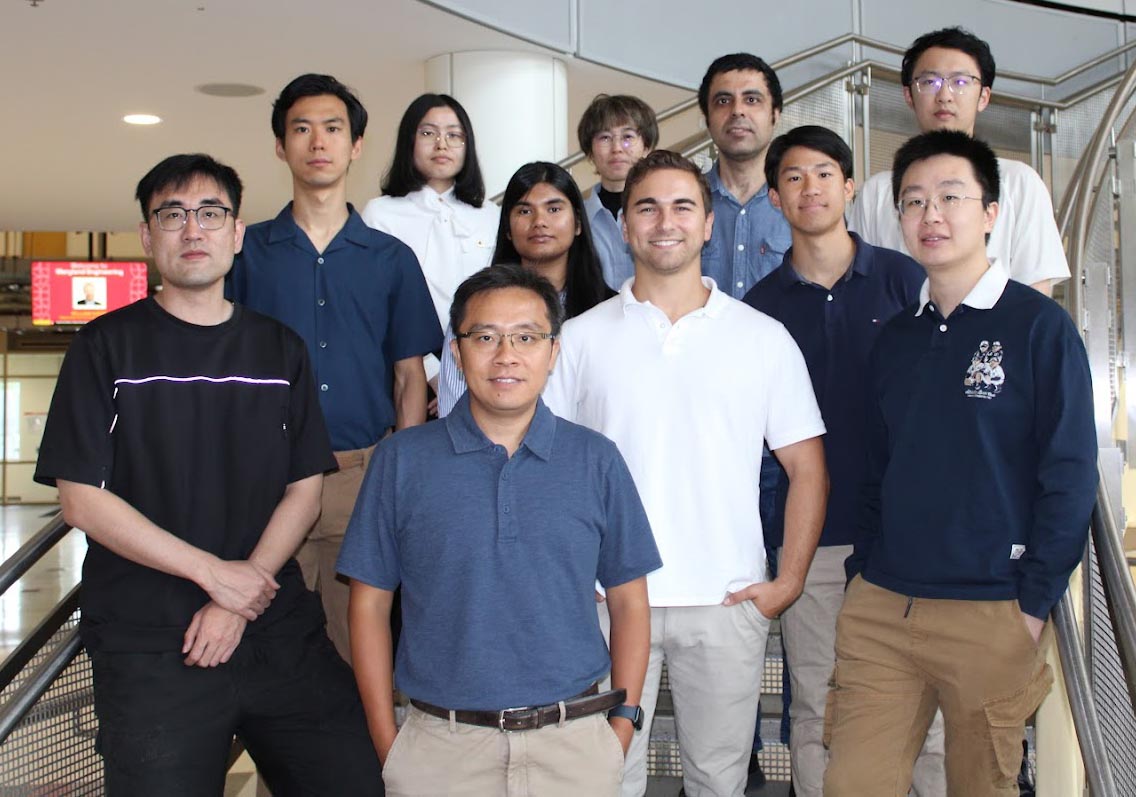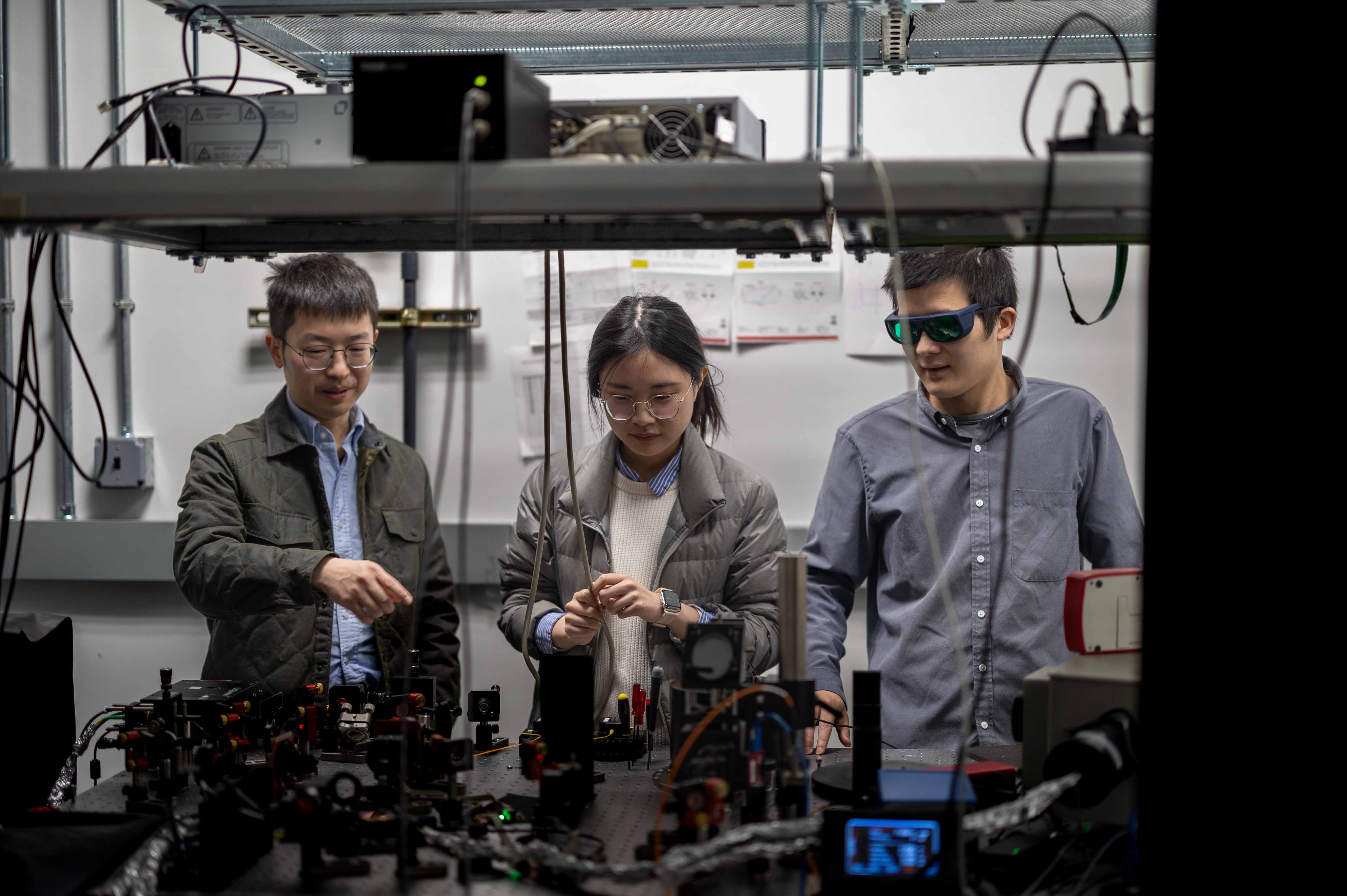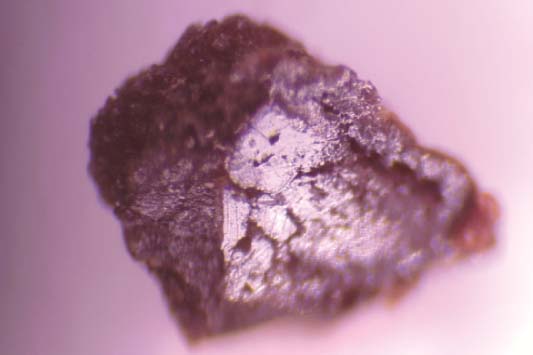$1.9M NSF FuSe2 award - Cheng Gong’s 7th NSF research grant in the past two years
September 18, 2024
Professor Cheng Gong has been awarded the highly selective National Science Foundation (NSF) Future of Semiconductors (FuSe2) Grant for his proposal titled FuSe2 Topic 3: High-performance & Energy-efficient In-memory Computing Devices with Co-Designed 2D Ferroelectric Materials and Stacks. This 3-year $1.9 million grant will allow Gong and his team to conduct research to develop an energy logic-memory bifunctional device, as well as train the workforce specializing in semiconducting materials and devices.
The NSF FuSe2 program (by NSF and co-funding industry partners including Ericsson, Intel Corporation, Micron Technology, and Samsung) supports collaborative research and education in partnership with industry on domain-specific computing, heterogeneous integration, and new materials for energy-efficient, enhanced-performance and sustainable semiconductor-based systems. The development of high-performance, energy-efficient ferroelectric tunnel junctions (FTJ) for in-memory computing is the ultimate goal of Gong team’s funded project.
In traditional computers, processing and memory are two separate systems; data is transferred from the long term storage to the local memory then fetched by the CPU, which limits the information processing speed, thus consuming greater amounts of energy. The data center consumes more than 1% electrical power worldwide, which poses an urgent call for fast, energy-efficient computing. To confront this challenge, Gong’s team plans to develop a novel microelectronic functional unit by co-designing two-dimensional (2D) van der Waals ferroelectric materials, interfaces, and multilayer stacks, resulting in a nanodevice with low working voltages, high switching ON/OFF ratios, and high ON-state current densities. These three items will come together to create the needed FTJs within a single device. A combination of first-principles calculation, quantum transport simulation, high-quality bulk crystals and thin films synthesis and characterization, and FTJ nanodevices fabrication and characterization will be used to develop the materials and devices needed for desired results.
Gong will serve as PI of the project, with three co-PIs: Nitin Samarth and Zhiqiang Mao from Pennsylvania State University and Tony Low from the University of Minnesota. This prestigious award is Gong’s 7th NSF research grant within the past two years for quantum and microelectronics related research.
University and Tony Low from the University of Minnesota. This prestigious award is Gong’s 7th NSF research grant within the past two years for quantum and microelectronics related research.
“This success is a clear testament of Prof. Gong and his team’s leading impact in the general field of microelectronic devices. The 3-year research and workforce development program strongly resonates with UMD engineering’s strength and prioritized research directions. I look forward to seeing that a solid workforce for future microelectronics will be produced at UMD and partnership institutions under this program”, remarked Samuel Graham, Dean and Nariman Farvardin Professor of Clark School of Engineering at UMD.
“NSF FuSe2 is a highly selective program for transformative projects that hold the potential to yield breakthroughs in semiconductor and microelectronic technologies in the US. We are happy that the project of the team led by Prof. Gong was selected in this nation-wide competition. This program will provide a platform for Prof. Gong’s team and our ECE department to work together in the resurgence of the next-generation microelectronics in the US”, UMD ECE Chair and Distinguished University Professor Sennur Ulukus remarked.
Since joining UMD ECE in 2019, Gong has been highly recognized for his work. He has received the 2020 IUPAP Young Scientist Prize in Semiconductor Physics, the 2022 UMD Invention of the Year Award, the 2022 ECE Jimmy H.C. Lin Award for Entrepreneurship, the 2022 ECE George Corcoran Memorial Award for Faculty, the 2022 Maryland Chemist of the Year Award, the 2023 Clark School of Engineering Outstanding Research Award for Junior Faculty, the 2024 NSF CAREER Award, and the 2024 DOD DURIP Award.









